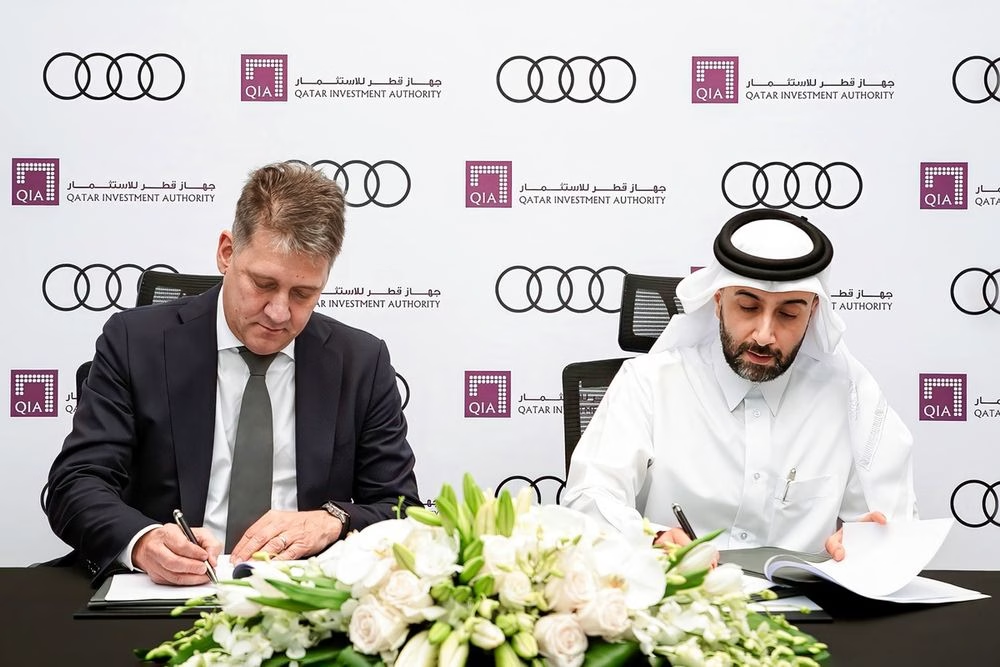“Be fearful when others are greedy – and greedy when others are fearful.” The famous words of US investment guru Warren Buffett aptly sum up the Qatari Investment Authority’s reasons for taking a shareholding in Audi’s Formula 1 team.
Qatar’s sovereign wealth fund has been investing in Audi’s parent, the Volkswagen Group, since 2009 and currently owns 17% – making it one of the largest individual shareholders.
Given that VW recently reported a 60% drop in profits, against a backdrop of plummeting sales in China as well as Europe, some might question the wisdom of putting more money into an entity when the booked value of your existing investments has gone down.
But the Qatari buy-in answers a specific need for both parties. For Audi and VW it represents an opportunity to stop conspicuous spending on F1 at a time when the group is under pressure in Germany over plans to shut down factories and make tens of thousands of workers redundant – regardless of Audi CEO Gernot Dollner’s claim that the QIA deal has nothing to do with the Group’s financial issues.
At the same time the numbers involved in the deal – reportedly $350 million for a 30% stake – demonstrate the financial value of remaining committed to F1 rather than walking away. Audi can de-risk its existing investment while staying in the game.
Unquestionably this is yet another course correction for Audi’s ailing F1 programme, and one which has been forced upon it by circumstances. When it announced its entry just over two years ago, the initial plan was to gradually increase its shareholding of Sauber to 75%, with billionaire TetraPak heir Finn Rausing retaining 25% via his Islero Investments vehicle.
Gernot Dollner, CEO of AUDI AG and Chairman of the Board of Directors of Sauber Motorsport AG, Mohammed Al-Sowaidi, CEO of QIA
Photo by: Audi
This seemed logical at a time when Audi envisaged its focus to be on the 2026 engine programme, largely leaving Sauber to deal with the chassis side. But Audi’s appointed CEO, former McLaren team principal Andreas Seidl, soon realised the team stood little chance of progressing from the back of the grid without more energy and funding from Audi, so he persuaded the board to sanction a total buy-out by 2026.
That was announced last March but Seidl and chairman Oliver Hoffmann (also an Audi appointee) became involved in a behind-the-scenes power struggle which led to their removal. Meanwhile, despite a technical…
Click Here to Read the Full Original Article at Motorsport.com – Formula 1 – Stories…

